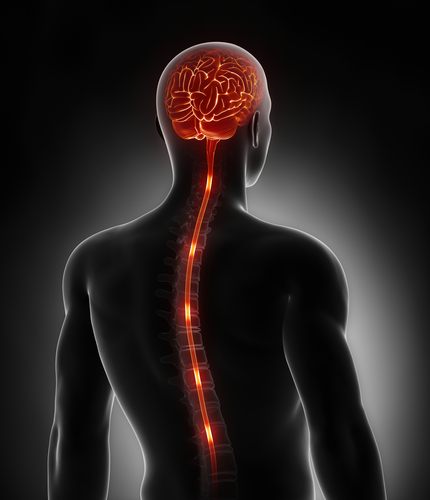FAQs About ALS

What is ALS?
Amyotrophic lateral sclerosis (ALS), also known as Lou Gehrig’s disease, is a progressive neurological disorder that affects the nerves that control muscle movement. Patients are generally diagnosed between ages 55–75. Symptoms can range from mild to very severe and may progress at different rates for different patients.
What causes ALS?
There are two forms of ALS: familial and sporadic. Familial ALS cases are those caused by genetic mutations, while sporadic ALS can be influenced by genetics (that is, genetics may make a person more likely to develop ALS) but are not directly caused by gene mutations.
For most cases, the cause of the disease is not known.
How do I know if I have ALS?
The first symptoms of ALS are often difficulty swallowing or speaking. With time, breathing may also become difficult. Some patients may have difficulty walking or balancing, as well as digestive problems.
More information is available on our “Symptoms” page.
Join our ALS forums: an online community especially for patients with Amyotrophic Lateral Sclerosis.
How is ALS diagnosed?
There is no single test that can confirm ALS and doctors may have to do multiple tests to eliminate other possibilities. This can make diagnosis a frustrating process for patients and their families.
Muscle function tests can determine whether the nerves are affected. Magnetic resonance imaging (MRI) scans can eliminate other neurological conditions, such as multiple sclerosis. Blood tests can eliminate infections that can cause symptoms similar to those seen in ALS.
More information about diagnostic tests is available on our “Diagnosis” page.
Is ALS contagious?
No, ALS is not contagious. The disease cannot be transmitted from person to person by direct contact.
Is ALS inherited?
Yes, ALS can be inherited. About 10% of ALS cases are linked to genetics. For the remaining 90% of cases, genetics may influence whether a person develops ALS, but genetic mutations do not cause the disease.
Following an ALS diagnosis, patients should speak with a genetic counselor to determine whether other family members should also be genetically tested.
How common is ALS?
It is estimated that at least 16,000 people have ALS, with about 5,000 new cases being diagnosed every year in the United States.
Is there a cure for ALS?
There is no cure for ALS at this time. However, there are treatments available that can reduce the severity of the symptoms and improve patients’ quality of life.
Where can I get more information?
We regularly publish articles on our website that cover ALS research, including new treatment options in development.
These organizations also offer information about ALS treatments and ongoing research:
- Centers for Disease Control and Prevention: National Amyotrophic Lateral Sclerosis Registry
- Les Turner Amyotrophic Lateral Sclerosis Foundation
- National Organization for Rare Disorders (NORD)
- Project ALS
- The ALS Association
- The ALS Society of Canada
We also have a number of columnists who write about the daily challenges of living with ALS:
- Joyful Sorrow by Kristin Neva
- Living Well with ALS by Dagmar Munn
- Notes from the ALS Front by Rick Jobus
- The Mighty Mind by Rachel Doboga
How can I connect with other patients and families?
We have online ALS forums where patients and their families can meet one another and discuss a variety of topics. New topics are posted frequently. If forum members do not see a topic of interest, they are encouraged to message the moderators to get a conversation started.
Last updated: Sept. 26, 2019
***
ALS News Today is strictly a news and information website about the disease. It does not provide medical advice, diagnosis or treatment. This content is not intended to be a substitute for professional medical advice, diagnosis, or treatment. Always seek the advice of your physician or other qualified health provider with any questions you may have regarding a medical condition. Never disregard professional medical advice or delay in seeking it because of something you have read on this website.






